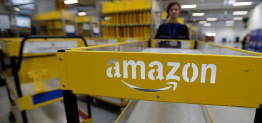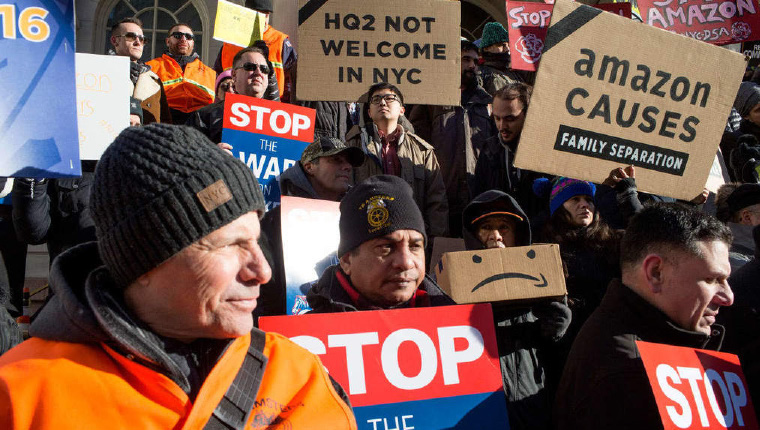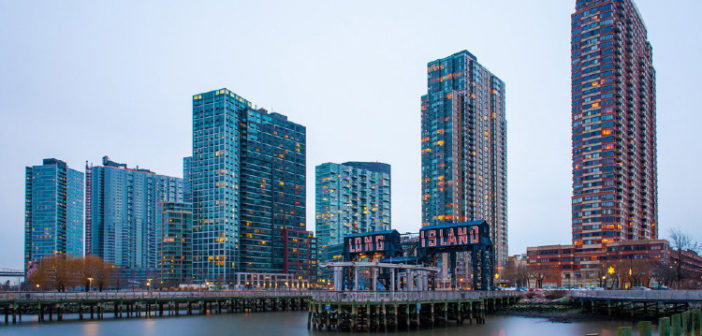By: William Burns
Amazon has outgrown its single headquarters in Seattle, and after a long public search, they have found their new bases of operations in most recent months.
This company has been growing at an exponential rate and has taken over the retail industry by providing consumers with an online professional sales channel that dwarfs all other websites. Couple that with amazing discounts and fast shipping, Amazon has become the No. 1 online store for shoppers, according to Statista.
Originally, headquartered in Seattle, Washington, in early 2017 Amazon realized a need for another headquarter, or “HQ2” as they named it, somewhere in the country. They allowed the qualifying cities to offer them incentives like massive tax breaks and subsidies. These local and state governments were mesmerized by the potential economic growth that it would bring. In November 2018, Amazon settled on not one, but two locations for the new headquarters: Long Island City, New York, and Arlington, Virginia.
Why they needed new HQs
Amazon, whose stock price has tripled over the last three years {552.52 to 1647.18}, outgrew the original headquarters in Seattle and wanted to go somewhere that has tech talent, educated professionals, a solid workforce to fuel it and good channels of transportation, in the air and on the ground. When asked about the reason for the additional headquarters, Amazon CEO Jeff Bezos had good intentions.
“These two locations will allow us to attract world-class talent that will help us to continue inventing for customers for years to come. The team did a great job selecting these sites, and we look forward to becoming an even bigger part of these communities,” said Bezos.

Originally, headquartered in Seattle, Washington, in early 2017 Amazon realized a need for another headquarter, or “HQ2” as they named it, somewhere in the country. Credit: @DailyCaller
Amazon was struggling to get tech talent in because of the location. No one really wanted to live in Seattle so instead of getting talent to move to them, they moved to the talent. It is unusual for companies to have two headquarters, much less three. However, the dual headquarters keeps the new cities safe from the sheer size of Amazon. Dr. Zachary Smith, an economics professor at Saint Leo University, commented on the situation.
“With a company like Amazon, having multiple headquarters allows these smaller units to interact more efficiently that one massive HQ could.”
Pros
With Amazon comes a promised $5 billion investment in the area over the next 10 to 20 years. This is in addition to the thousands of jobs and the economic growth it brings as well. In the next 15 years, Amazon is predicted to hire around 50,000 people, with a mean salary of $100,000. Amazon speculates that between 2010 and 2016 the company and its investments pumped $38 billion into the economy and believes it will do the same in the new cities, according to CBSNews.
With all the new jobs, also come people looking for homes within commuting distance causing housing prices to skyrocket. In an article by HOUSINGWIRE, a homeowner news outlet, Redfin Realty reported they had an influx of calls from people looking at homes in the area surrounding the new headquarters in both New York and Virginia, shortly after the new HQs were announced. Currently, the prices are bolstered by the anticipated demand that Amazon will cause people to move into the area. When asked if the housing bubble would remain near the areas of the new HQs, Smith replied with “Time will tell. People will have to weigh the higher cost of housing against the transportation costs of living farther away.” To go along with all these people comes more tax income for the state and local governments to improve public transportation and boost the school system to accommodate new people.
Cons
The problem with rising housing prices is that it conflicts with affordable housing areas. Affordable housing is already in jeopardy due to regular rising rent prices and adding the new HQs will surely exacerbate the problem. This could force residents in the affordable housing sector out of their homes. With all the new families coming to work for Amazon, there will be an influx of students into already full school systems with no real solution. Even many New Yorkers are raising their voices in protest of the tax breaks given to Amazon, thinking “Why are we giving away tax dollars to the richest man on earth?” Political figures are also weighing in, such as state senator Michael Gianaris, who represents Long Island City, opposing the deal.
In regards to the public announcement that Amazon was looking for a new HQ and taking bids to come to certain cities, it remains a big question of business ethics. Should a company of such magnitude be taking subsidies and tax breaks to set up shop in a city?

There have been protests by New Yorkers because Amazon is not planning to unionize their headquarters. Credit: @AmitKishore
Analysis
Amazon had become too big for one HQ, especially with its current location. There is little doubt that they will be able to deliver the expected economic growth to their new cities. This growth is not immediate and will take place over the course of 10-20 years, theoretically allowing for public transportation and public-school systems to accommodate the new population.
“It is an investment for the state and local governments,” Smith remarked. “They are risking the subsidies and tax breaks in return for potential economic growth. They are weighing the marginal benefit they could receive from Amazon, against the marginal cost of getting Amazon to their city.”





